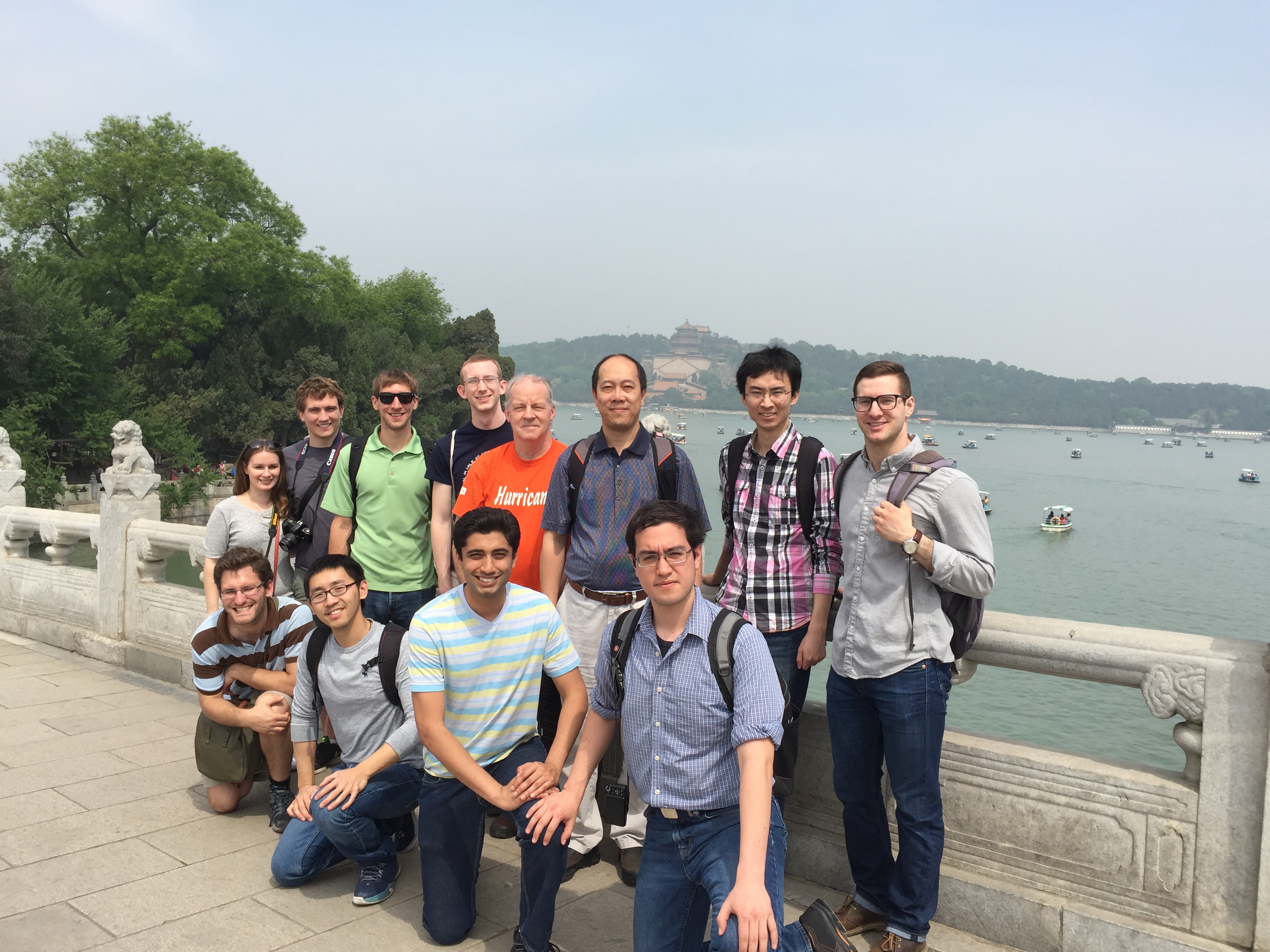Author: Steven Brown
We began our day early with a walk along the tree-lined streets of the beautiful Tsinghua university campus. The rising sun lit up the foliage and revealed clear blue skies that persisted throughout our day trip. Just two subway stops beyond the university’s west gate and down a few bustling Beijing streets, we arrived at the Summer Palace where we were immediately plunged several centuries into Chinese past to the emperor’s private vacation getaway. Professor He guided the group through the opulent palace gates and down shady stone paths to the astutely-named Garden of Harmonious Pleasures, a tranquil pond surrounded by willow trees, bridges, and ornately-decorated terraces. An excessive number of photographs were taken by me at this first site, a recurring theme throughout the rest of the day.
Our next stop within the sprawling grounds was the impressive Grand Theater Building, housing a towering three-story performance stage that must have filled the eyes and ears of royalty that sat on cushioned benches just yards away. The true extent of the emperor’s grandeur was unmistakable upon stepping out onto the vast Kunming Lake. We walked along the Long Corridor, a special covered walkway erected just to keep rain off of the emperor; every cross beam was painted with a different scene that told what may have been a kilometer-long story. Before taking a ferry ourselves, we ascended the steps of the Tower of Buddhist Incense and viewed the expanse of the paddle boat-laden waterway.
“Just across the street a replica sculpture of an Old Summer Palace ruin was symbolically cast in steel, perhaps to signify new strength and hardness of temperament.”
After indulging in a sizable family-style lunch, we set off for the emperor’s original vacation destination, the Old Summer Palace nearer to our Tsinghua home base. Now mostly ruins, this beautiful labyrinth of man-made hills, ponds, and tree lines stretched out far beyond the extent of one afternoon’s visit. According to Professor He, the loss of the palace’s magnificent wooden structures to fires set by Anglo-French soldiers one-and-a-half centuries ago still motivates the Chinese to never again tolerate foreign aggression. He said that this is a mindset that permeates Chinese society even today. Following $2-per-person spicy hot pot dinners and drinks at the nearby Tsinghua student cafeteria, we found ourselves walking past a large, bright new student library that dwarfs even Michigan’s beloved Duderstadt Center. Just across the street a replica sculpture of an Old Summer Palace ruin was symbolically cast in steel, perhaps to signify new strength and hardness of temperament.

